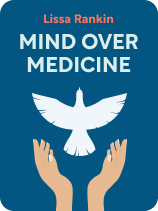

This article is an excerpt from the Shortform book guide to "Mind Over Medicine" by Lissa Rankin. Shortform has the world's best summaries and analyses of books you should be reading.
Like this article? Sign up for a free trial here.
What role does your social life play in your health and well-being? Why is it important to surround yourself with the right people?
Having a social life is an important factor in one’s mental and physical well-being. But it’s not just being around people that matters. To reap the psychological benefits of socializing, you must surround yourself with the right people.
Here’s a look at the importance of social life and some tips for cultivating enriching and emotionally fulfilling relationships.
Improve Your Relationships
The importance of social life for your well-being cannot be underestimated. However, being around people isn’t enough—you have to be around the right people. In fact, the quality of your relationships can be more influential to your health than your diet, exercise, and even whether or not you smoke. According to Rankin, healthy relationships trigger those positive hormones oxytocin and dopamine, which induce relaxation and healing.
Here are five of Rankin’s tips for cultivating a satisfying social life:
1) Stay true to yourself. Other people’s expectations are constantly moving targets. So instead of trying to meet them, open yourself up to people who accept and love you as you are. As a result, you’ll form quality relationships.
2) Seek people you relate to. To find people who accept you as you are, find a group of people in your community who share interests with you.
(Shortform note: In The Upside of Stress, Kelly McGonigal says you can cultivate meaningful relationships by being honest and open about the things you personally struggle with. For example, if you struggle with anxiety, admit when you’re feeling anxious to people you trust, or start a social media group that discusses anxiety. Doing this will help like-minded people feel heard and comforted, which will ultimately inspire them to be open and supportive toward you. In this way, you can attract the right people toward yourself.)
3) Fix your sex life. Engaging in a healthy sex life offers innumerable benefits—from lower risk of cancer, stroke, and heart disease to having more youthful skin. Sex alone doesn’t offer these benefits, however—to reap the rewards, sex should serve as a deep connection between two partners who trust each other. Rankin says if anything about the sex causes you stress, such as dishonesty, distrust, cheating, or physical pain, then that sexual relationship can actually cause health problems. If this is the case, consider finding a different sexual partner or seek therapy to help with the issues.
(Shortform note: Some experts say that issues with your sex life can potentially be remedied by designing a consensual open relationship with your partner. Because monogamous relationships tend to demand that each partner fill so many of the other’s needs (social, emotional, financial, and sexual, to name a few), this traditional type of relationship can be overwhelming to some. When your partner is unwilling or unable to meet your sexual needs, consensual non-monogamous sex can sometimes lead to healthier relationships too. However, open relationships—like any sexual relationship—have the potential to bring you connection and satisfaction or stress, and this arrangement isn’t right for everyone.)
4) Find doctors who care. Consult with doctors until you find “the one.” This doctor should take time to answer your questions and believe that you can get better. If you ask about “alternative” forms of treatment (for example, doing acupuncture in conjunction with physical therapy), a good doctor will give you advice but not dismiss anything outright or disparage other treatments that may help.
(Shortform note: One tip is to prepare for your consultations by writing down everything you’d like to talk to your doctor about—your symptoms, how they’re affecting you, your goals, and so on. This can help you avoid feeling overwhelmed or forgetting anything important to your health journey when you meet with a physician for the first time.)
5) Be honest about your needs. If any important person in your life isn’t meeting your needs, tell them. Rankin says all relationships strengthen with honest communication about what is and isn’t working. (Shortform note: In Attached, Psychiatrist Amir Levine and psychologist Rachel Heller emphasize that communicating directly and honestly about your own needs has the added benefit of setting a good example for your partner and encouraging honesty in return.)

———End of Preview———
Like what you just read? Read the rest of the world's best book summary and analysis of Lissa Rankin's "Mind Over Medicine" at Shortform.
Here's what you'll find in our full Mind Over Medicine summary:
- How a healthy mind can heal physical ailments
- How our beliefs, our relationships, and our jobs affect our health
- How to improve the most important parts of your life






